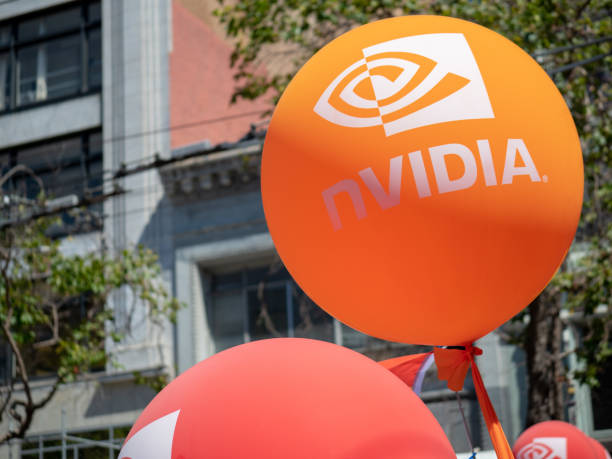
On February 14th, Nvidia, the leading artificial intelligence (AI) chipmaker, stood at the brink of surpassing Alphabet as Wall Street’s third most valuable company, marking a significant milestone in its trajectory. The company’s market capitalization soared above Amazon‘s for the first time in two decades, fueled by its dominant position in the AI chip market and relentless demand for its products.
Market Dynamics and Performance
Nvidia’s shares experienced a marginal decline of 0.17%, yet its market value reached a staggering US$1.78 trillion, surpassing Amazon’s US$1.75 trillion value after the latter’s stock witnessed a notable decline of 2.15%. Meanwhile, Google-owner Alphabet observed a 1.62% dip in its stock, resulting in a market capitalization of US$1.81 trillion.
Nvidia has emerged as a frontrunner in the race among technology companies to integrate AI into their offerings. Its graphics processors have witnessed soaring demand, with companies like Meta Platforms and other tech giants investing billions in Nvidia’s components. The company commands approximately 80% of the high-end AI chip market, driving its stock up by 46% this year and more than tripling it in 2023.
Analyst Insights and Price Targets
Mizuho raised its price target for Nvidia’s stock to US$825 from US$625 ahead of the company’s quarterly results scheduled for February 21. Analyst Vijay Rakesh highlighted the declining lead times for Nvidia’s top-shelf H100 processor, indicating robust demand that surpasses supply. He anticipates “substantial AI upside” for Nvidia, Broadcom, and Advanced Micro Devices, underscoring the bullish sentiment surrounding Nvidia’s growth prospects.
Alphabet, owner of Google, has integrated chatbot technology into its search engine and marketed generative AI tools to its cloud customers. Despite its AI initiatives, Alphabet’s stock faced a setback following its quarterly report on January 30, failing to meet investors’ expectations. Nevertheless, the company’s stock has witnessed a 4% increase in 2024, reflecting resilience amidst market fluctuations.
Historical Perspective and Market Dynamics
Nvidia’s market capitalization briefly exceeded Amazon’s on Monday, marking a significant milestone reminiscent of 2002 when both companies were valued at under US$6 billion each. However, Nvidia’s market value plummeted to under $2 billion by mid-2004, contrasting with Alphabet’s listing of shares at a valuation of US$23 billion during the same period.
Microsoft, recognized as a frontrunner in the AI race, surpassed Apple in January to become the world’s most valuable company, boasting a market capitalization exceeding US$3 trillion. Meanwhile, Saudi Aramco, the state oil giant, ranks as the world’s third most valuable publicly listed company, with a market capitalization of US$2 trillion, albeit with over 90% of its shares closely held by the Saudi Arabian government.
Market Sentiment and Future Prospects
While Nvidia continues its ascent in the technology landscape, Apple, traditionally considered a tech leader, has faced challenges in the AI domain, evident from its 4% stock decline in 2024. The market remains vigilant about the evolving dynamics of tech companies and their strategic investments in AI technologies, anticipating their impact on future growth trajectories.
| Company | Market Capitalization |
|---|---|
| Nvidia | US$1.78 trillion |
| Amazon | US$1.75 trillion |
| Alphabet | US$1.81 trillion |
Nvidia’s impending challenge to Alphabet’s market capitalization underscores the company’s remarkable growth trajectory and dominant position in the AI chip market. As tech giants continue to invest in AI technologies, the competitive landscape is poised for further evolution, reshaping market dynamics and valuations.
Featured image credit: David Tran via iStock
